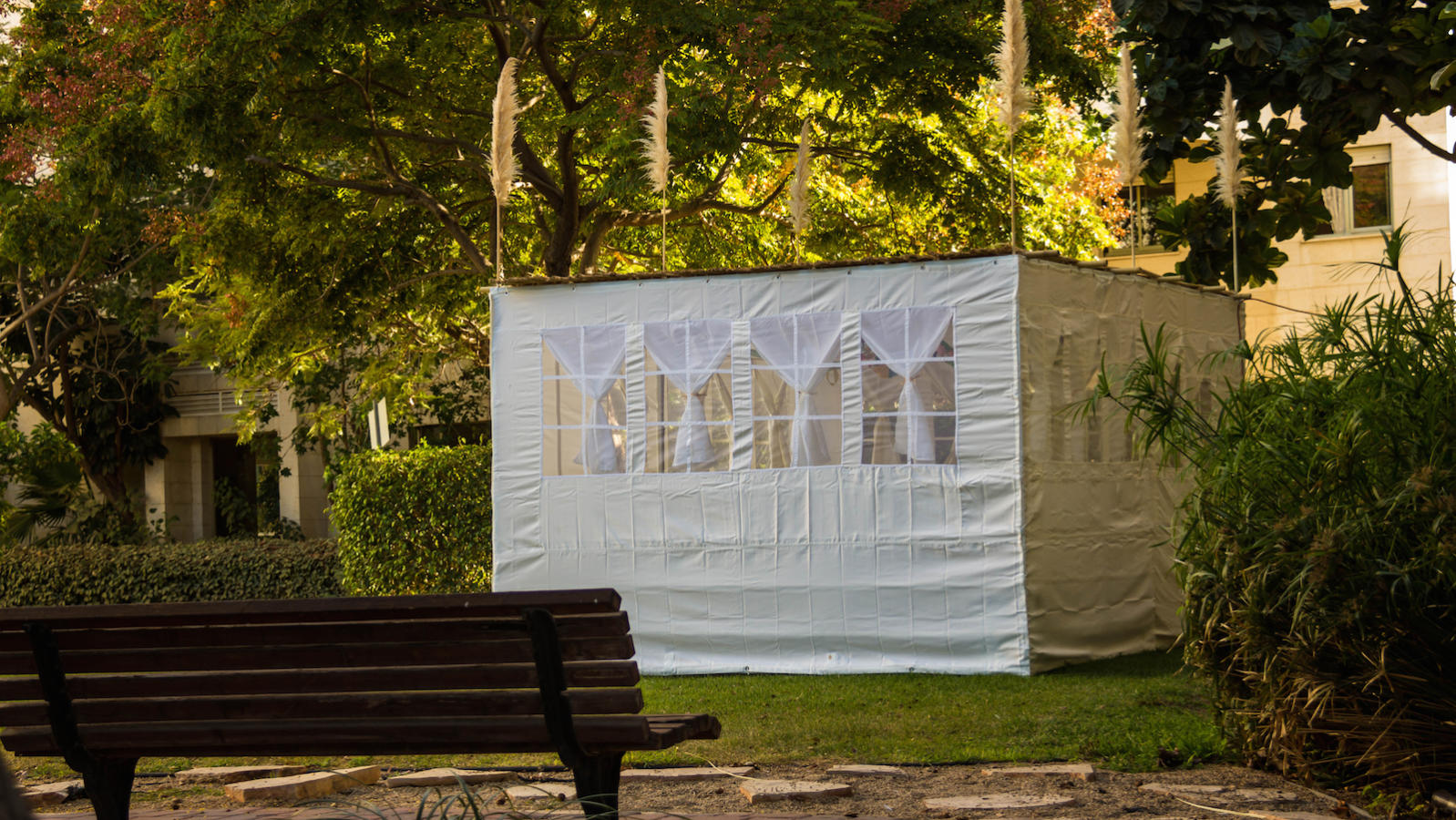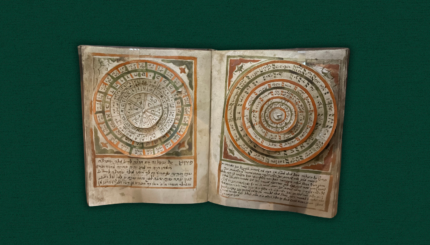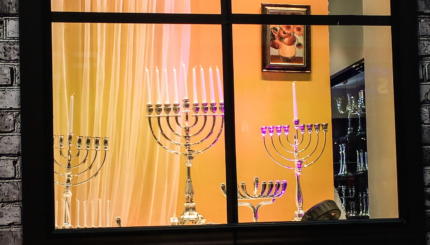Throughout the centuries, many interpretations have been offered for the sukkah and the commandment to dwell therein. Here are some of these interpretations:
1. The sukkah was built to show misfortune at a time of good fortune and to remind the rich of the poor (Philo).
2. The sukkah serves as an admonition to man not to become overconfident because of affluence. Like one’s ancestors in the desert who dwelt in a sukkah, one’s survival is contingent upon the grace of the Almighty (Rashbam, Leviticus 23:43).
3. Man must leave his permanent home and move into a temporary abode that is devoid of wealth and security to remind him that he depends upon the Almighty (Menorat HaMaor).
With your help, My Jewish Learning can provide endless opportunities for learning, connection and discovery.
4. The sukkah is built after Yom Kippur. The Almighty sits in judgment on Rosh Hashanah. On Yom Kippur He seals the verdict. If they were sentenced to go into exile, they build a sukkah wherein they dwell and thus are exiled from their homes to the sukkah. The Almighty deems it as if they had gone into exile to Babylonia. Thus, the sukkahis symbolic of Jewish wandering and homelessness (Pesikta d’Rav Kahana 28).
5. The sukkah commemorates the first booth built by Abraham when he greeted the three angels (Numbers Rabbah 14).
6. The mention of the Exodus from Egypt in connection with the mitzvah of the sukkah implies that the sukkah also serves as a memorial to the miracles of the Exodus (Tur, Orach Chayim 625).
7. The mitzvah of the sukkah arouses the desire to rely on the Holy Blessed One, as did our ancestors who departed from Egypt (Sefat Emet).
8. The vision of a universal brotherhood is reflected in the sukkah, whose door and roof are open.
9. The sukkah is also portrayed in the liturgy as a symbol of peace, known in Hebrew as the sukkat shalom. For instance, in the prayer Hashkeevaynu (“cause us to lie down”) the worshiper petitions God to “spread over us the shelter of Your peace.” The prayer concludes with these words: “Praised are You, God, Who spreads a shelter of peace (sukkat shalom) over us, over all God’s people Israel, and over Jerusalem.”
10. An interesting archaeological study was made in Elephanti, Egypt. They found several business contracts describing real estate dealings that included the phrase: “Upon prompt payment I deed you this land.” And then this phrase is followed by a second surprising phrase: “This simcha with joy, love, and happiness.” After a careful study of the comparative language of real estate contracts, scholars have learned that simcha in ancient languages has a second meaning, namely, that of “acceptance.” Thus, the phrase zeman simchatenu might be rendered not “time of rejoicing” but “moment of acceptance.” Sitting in the sukkah might be Judaism’s way of teaching us that we need to recognize that there are parts of life that are flimsy and frail. We need to set aside a special moment to recognize and accept that which is difficult. Reciting the phrase zeman simchatenu as part of the Sukkot liturgy is a consciousness-raising device.
Excerpted from Every Person’s Guide to Sukkot, Shemini Atzeret, and Simchat Torah. Reprinted with permission of the publisher. Copyright 2000 Jason Aronson, Inc.
mitzvah
Pronounced: MITZ-vuh or meetz-VAH, Origin: Hebrew, commandment, also used to mean good deed.
sukkah
Pronounced: SOO-kah (oo as in book) or sue-KAH, Origin: Hebrew, the temporary hut built during the Harvest holiday of Sukkot.
Sukkot
Pronounced: sue-KOTE, or SOOH-kuss (oo as in book), Origin: Hebrew, a harvest festival in which Jews eat inside temporary huts, falls in the Jewish month of Tishrei, which usually coincides with September or October.
Yom Kippur
Pronounced: yohm KIPP-er, also yohm kee-PORE, Origin: Hebrew, The Day of Atonement, the holiest day on the Jewish calendar and, with Rosh Hashanah, one of the High Holidays.



